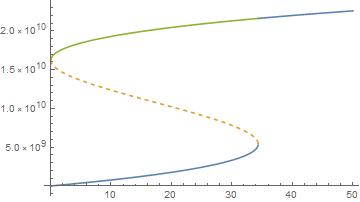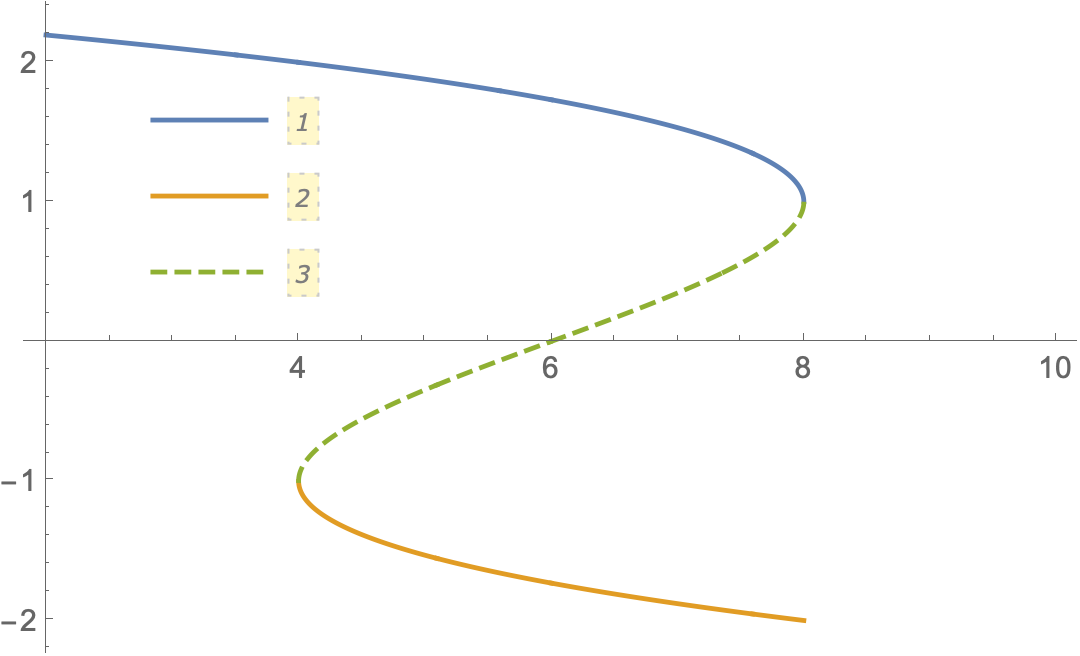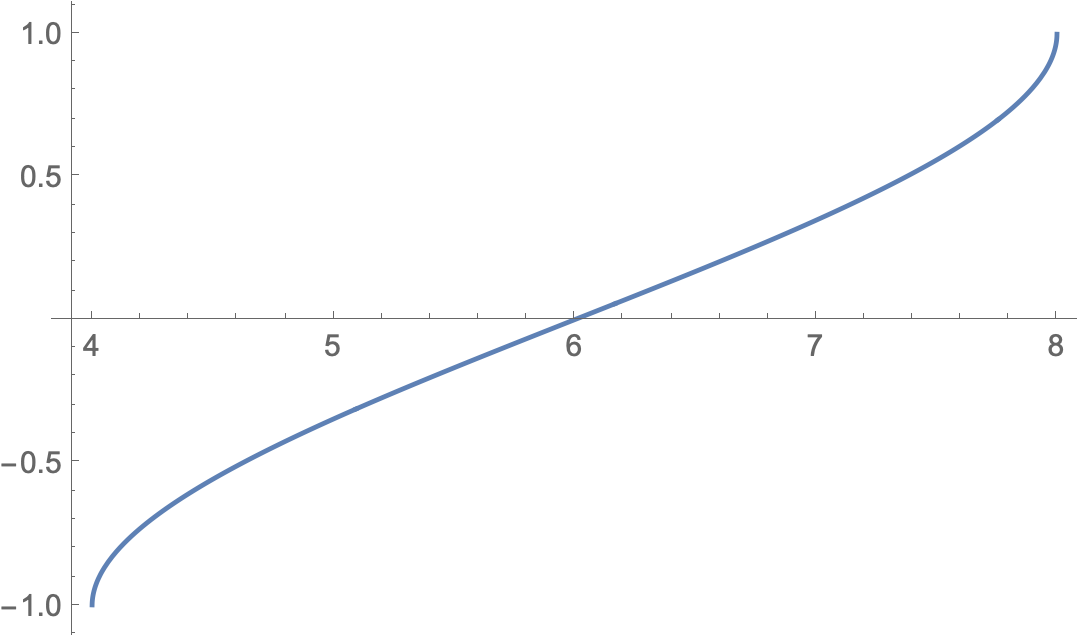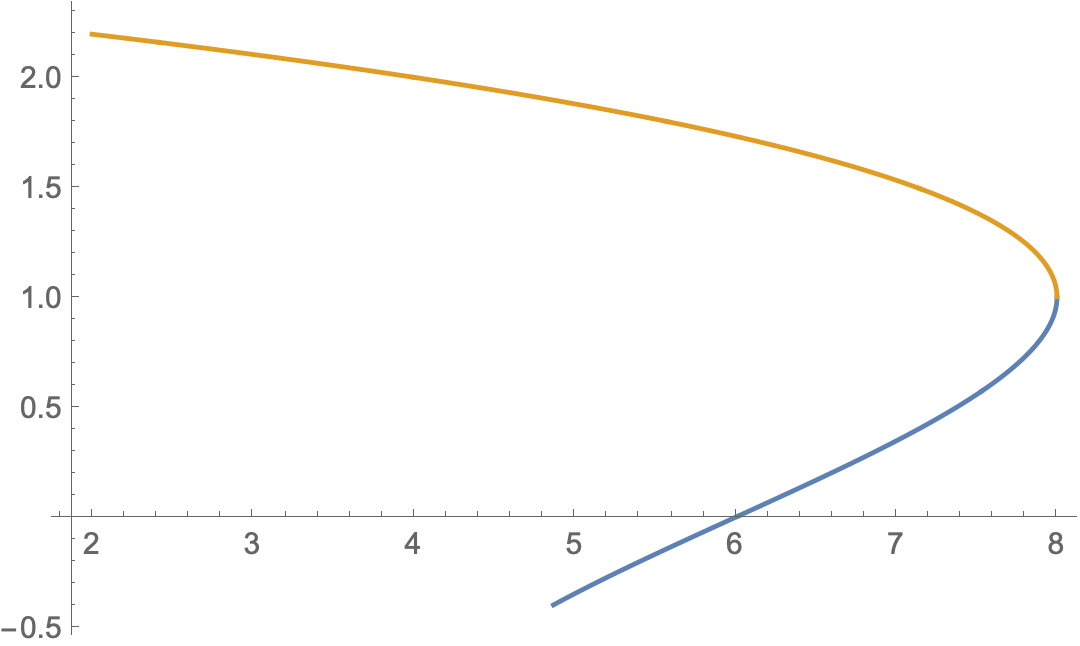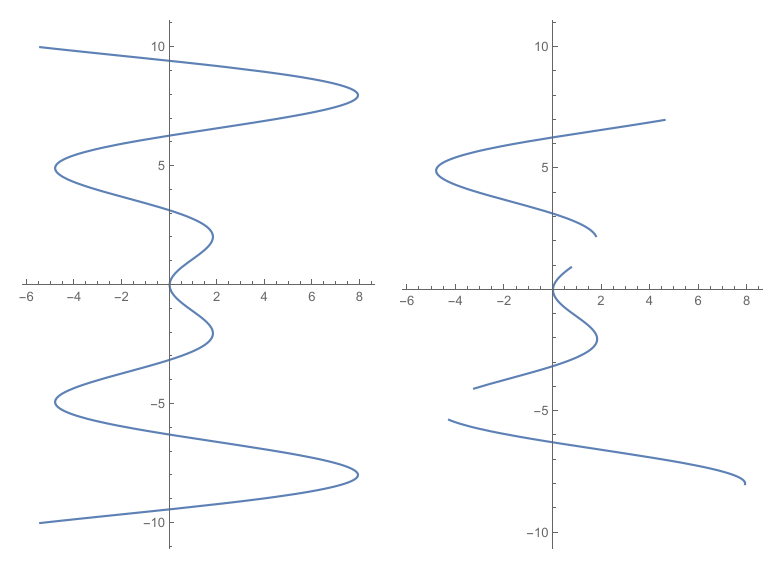I want to run the y-coordinates of this graph through a set of inequalities and store only those values which satisfy them. I thought of using For loop with TrueQ but the y co-ordinates have three solutions corresponding to a particular x. I did not get how to run these three values and for each x. May anyone please guide?
g1 = 430 *Pi;
h = (6.63/(2*Pi))*10^-34;
k = 2*10^6*Pi;
wm = 2*10^7 *Pi;
d = 2.7*wm;
wp = 2*Pi*3.14*10^14;
eqn=y (d^2+k^2)-(2 d g1^2 y^2)/wm+(g1^4 y^3)/wm^2==(2 k x)/(h wp)//Simplify;
solR = Solve[eqn, y, Reals];
y1 = Evaluate[y /. solR];
plt = Plot[Evaluate[y /. solR], {x, 0, 3},
WorkingPrecision -> Automatic, PlotStyle -> {Automatic, Dashed}]
r = y1 /. Undefined -> 0;
result = Nothing;
For[x = 0.42, x < 2, x = x + 0.01, i = 1;
For[i = 1, i < 4, i++,
s1 = k^2 + (d - ((g1^2)*r[[i]]/wm))^2 + 2*k*gm + wm^2;
s2 = (k^2 + (d - ((g1^2)*r[[i]]/wm))^2)*gm + 2*k*wm^2;
s3 = (k^2 + (d - ((g1^2)*r[[i]]/wm))^2)*(wm^2) - (d - (g1^2*
r[[i]]/wm))*wm*(g1^2)*(2*r[[i]]);
If[s1 > 0 \[And] s2 > 0 \[And]
s3 > 0 \[And] ((2 k + gm) s1 > s2) \[And] (s1*s2 (2 k + gm) >
s2^2 + (2 k + gm)^2*(s3)),
result = Level[{result, {x, r[[i]]}}, {-2}]; Print[r[[i]]],
Continue[]]]]
Given Below are inequalities:
s1=k^2+(d-((g1^2)*y1/wm))^2+2*k*gm+wm^2;
s2=(k^2+(d-((g1^2)*y1/wm))^2)*gm+2*k*wm^2;
s3=(k^2+(d-((g1^2)*y1/wm))^2)*(wm^2)-(d-(g1^2*y1/wm))*wm*(g1^2)*(2y1);
(2k+gm)s1>s2;
s1*s2(2k+gm)>s2^2+(2k+gm)^2*(s3);

